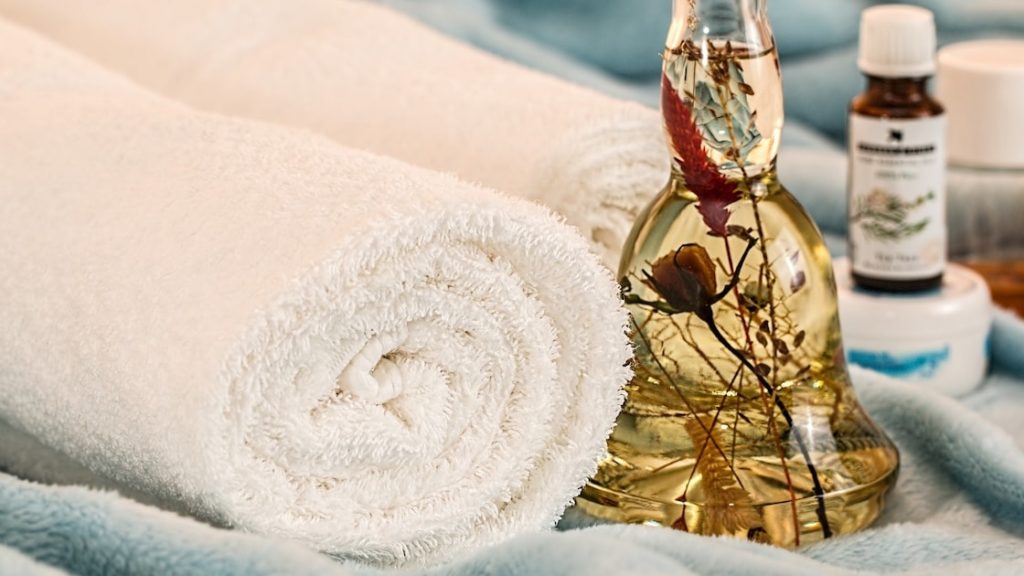How to Heal with Essential Oils

Oh, the versatility of essential oils! You can ingest them, inhale them, apply them to your skin and hair, and they provide a wide range of benefits to your overall health no matter how you choose to use them! While essential oils have been used for more than 5,000 years, it seems as though they’ve only been gaining popularity in recent years. With the rising costs of healthcare and a growing skepticism towards “unnatural” forms of medicine, essential oils are seen a cost-effective and natural to improve health.
When you think about the the utilization of essential oils, aromatherapy and massage may come to mind. Just about any oil can be used for either one! Lavender is commonly used for stress relief, peppermint for pain relief. But there are so many more benefits than the predictable stress and pain relief! Did you know that plant oils can also balance your hormones, fight infection, cleanse your skin, support digestion, boost energy, and improve sleep?
What can essential oils do for you?
Stress Relief
This is probably the most widely known benefit of essential oils. Some oils have sedative properties that induce a calm and uplifting feeling when applied. Whether you’re dealing with some emotional stress or living with chronic anxiety, some oils that you might want to add to your medicine cabinet include:
- Lavender
- Chamomile
- Bergamot
- Ylang-ylang
- Orange
- Rose
- Vetiver
- Frankincense
Pain Relief
Muscle aches, headaches… the things you’d rather not take multiple ineffective doses of ibuprofen to treat. While over-the-counter pain medications are generally safe for most people, they do come with risks for individuals with certain medical conditions. Aspirin is a blood thinner, and antiplatelet drugs can be harmful to those who have hypertension and are at risk for intestinal bleeding. Natural medicine can be the safer option for anybody, but especially for those who need to be extra careful when shopping for their medications. Oils with natural analgesic properties include:
- Peppermint
- Lavender
- Eucalyptus
- Chamomile
- Rosemary
- Marjoram
- Thyme
- Frankincense
- Turmeric
- Ginger
- Myrrh
Balance Hormones
As we grow older, our hormones are constantly changing. Your levels of stress hormones such as cortisol and norepinephrine may be rising, putting you at risk for weight gain and high blood pressure. Testosterone, progesterone, and estrogen are also likely to be off balance as the body ages. Some essential oils that can aid hormonal balances include:
- Rosemary
- Frankincense
- Rose
- Clary sage
- Peppermint
- Thyme
- Sandalwood
- Chamomile
- Fennel
Fight Infection
It’s becoming common knowledge that your everyday hand sanitizers aren’t all that good for you. While they’re undoubtedly necessary in a hospital setting where medical professionals are coming in contact with infectious fluids and aiding multiple patients in short bursts of time without breaks, hand sanitizers really shouldn’t be your go-to for fighting harmful bacteria. Antibacterial resistance is on the rise, and this is in part due to the evolution that is taking place in the palm of your hand. When you squirt a glob of Germ-X into your skin, the potent gel is really only attacking the weakest of the bacterias. The strongest ones survive, and overuse of hand sanitizer can put you at higher risk of infection as the more resistant bacterias rise in number.
Certain essential oils, unlike the Germ-X and Purell, are able to weaken the cell wall (the tough protective layer of a cell) of the more resistant bacteria. So if you do use conventional sanitizers for a quick hand wash, try adding a few drops of essential oils after you’ve cleansed to combat those resilient bacterias. Some essential oils that are highly effective against common infections include:
- Oregano
- Cinnamon
- Lavender
- Tea tree
- Chamomile
- Eucalyptus
Skincare
Acne, eczema, dermatitis, dehydration, and signs of aging are just a few skin conditions that can be remedied with essential oils. Plant oils are rich in antioxidants; nutrients that fight against the free radicals attacking your skin cells. Moisturize and fight off those skin-damaging toxins with:
- Lavender
- Myrrh
- Neroli
- Tea tree
- Patchouli
- Rose
- Ylang-ylang
Support Digestion
Digestive problems can have a variety of contributors. Sometimes eating habits are to blame, but many live with medical conditions that lead to digestive difficulties and discomfort. Adding just one drop of an essential oil to your drink can help ease symptoms such as bloating, gas and upset stomach. Try one of the following:
- Peppermint
- Lemon
- Ginger
- Fennel
- Cardamom
- Grapefruit
Boost Energy
If you’re feeling low and fatigued, aromatherapy can perk you right up! Oils with powerful scents can naturally energize you and make you feel more focused; two benefits that promote brain health too! Drugs such as caffeine may also give you an effective energy boost, but they can also cause agitation, shakiness and an inconvenient caffeine crash. To wake yourself up without an inevitable crash, add one of these oils to a diffuser:
- Peppermint
- Eucalyptus
- Orange
- Lemon
- Grapefruit
- Cedarwood
- Thyme
Improved Sleep
You can say that the following oils are also energy boosters, as improved sleep is obviously a contributor. Soothing scents stimulate your parasympathetic nervous system; the division of your autonomic nervous system that slows your heart rate and relaxes your body. The parasympathetic system often referred to as the “rest and digest” division, in contrast to the sympathetic nervous system which triggers the body’s “fight or flight” response. Reduce hyperactivity and restlessness with the use of these essential oils:
- Chamomile
- Lavender
- Bergamot
- Jasmine
- Sandalwood
- Rose
- Vanilla
Things to Consider
While essential oils are safe for most of us, here are some things to consider before you stock your cabinet.
Allergies
A very small portion of people have reported skin reactions when applying essential oils. If you have sensitive skin, apply a drop of essential oil to your skin and make sure you don’t have a reaction before you decide incorporate it into a massage.
Pregnancy
Make sure to consult your physician before you use essential oils during pregnancy. Studies have suggested that cinnamon, clove, clary sage, and rosemary can have adverse effects during pregnancy. Even though lavender, chamomile and ylang-ylang are generally considered safe and have been shown to relieve the uncomfortable symptoms of pregnancy, you should still ask for your doctor’s opinion.
Epilepsy
Essential oils with calming properties can be a beneficial supplement for people with epilepsy. But some oils can be over-stimulating and trigger seizures. Fennel, eucalyptus, and camphor need to be avoided if you have been diagnosed with epilepsy. Be sure to ask your physician about which oils are safe.
Using Peppermint with Care
Peppermint oil is a sharp oil. If you get peppermint in your eyes, wash them with cold water immediately. The oil will not only cause a stinging pain, but it can be harmful if not immediately addressed.
Also, NEVER use peppermint or white flower oil in bath water. The sensation will be cold and burning at the same time — not even remotely therapeutic!
Don’t be discouraged from using peppermint for the above mentioned reasons, though. Apply it to your back for backaches, but maybe try a different oil on your temples for headaches.
There is no “cure-all” plant
Essential oils aren’t intended to “cure” common discomforts or illnesses. Your skin condition isn’t necessarily going to disappear overnight just because you cleansed with tea tree oil the day before. Our bodies all have their own unique composition and will react to oils at their own pace and efficiency. An oil that soothes one person’s ailment might have a less noticeable effect on another person’s.
Also, NEVER self-diagnose and or self-medicate if you experience any symptoms associated with a serious illness. While natural means of healing are becoming more popular, you shouldn’t completely rule out the use of modern medicine if you are seriously ill.
What Now?
Now that you know the benefits and contraindications that come with essential oils, try some out and see how they work for you! Feel free to bring your own oils with you the next time you visit your massage therapist. Or, ask if your therapist has any oils readily available for you!

Katrina Jenkins
Author, Licensed Massage Therapist
Katrina Jenkins graduated from Towson University in 2013 with a Bachelor’s Degree in Health Science and worked as a nurse’s aide briefly before pursuing her true passion. She graduated from the Massage Therapy Institute of Colorado in April 2016 with honors and completed the Touch of Healers Scholarship Program the following summer. She has been a part of the Moyer Total Wellness Team since the summer of 2017.
